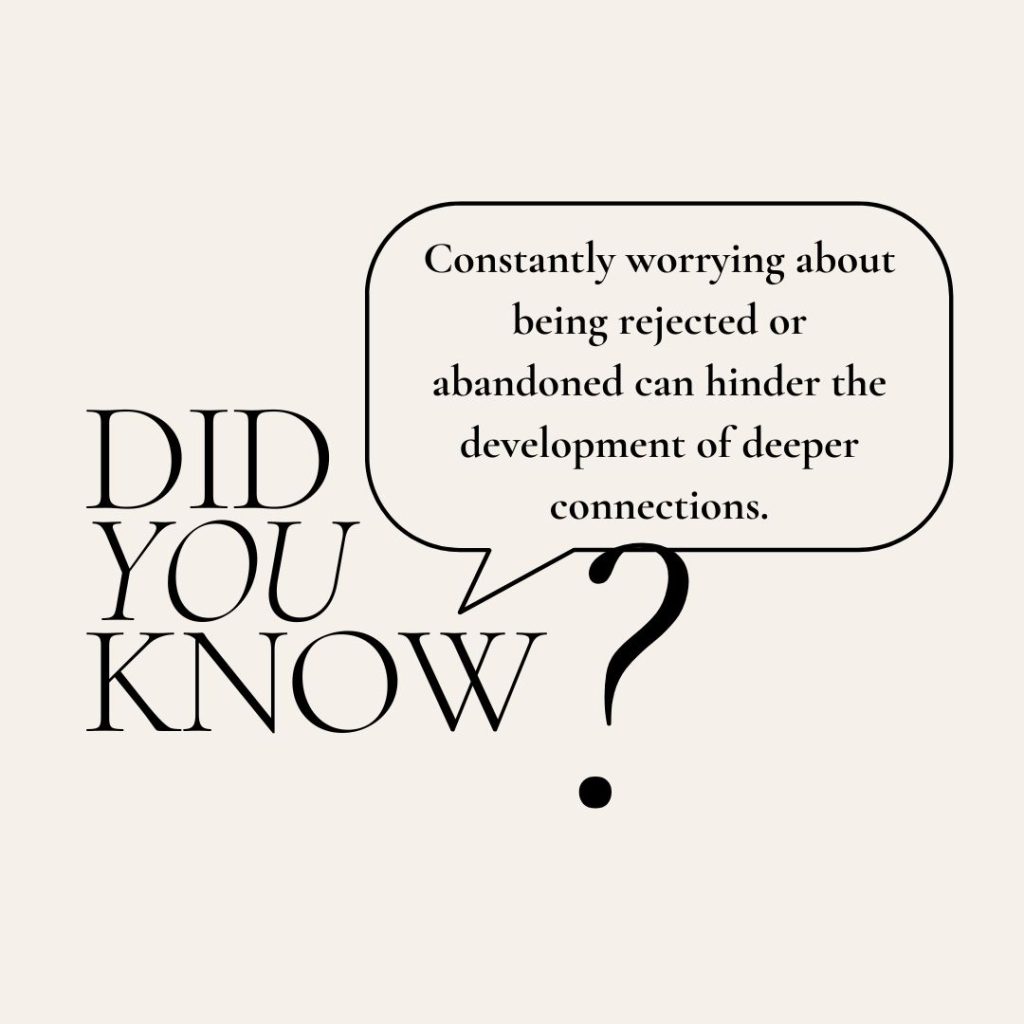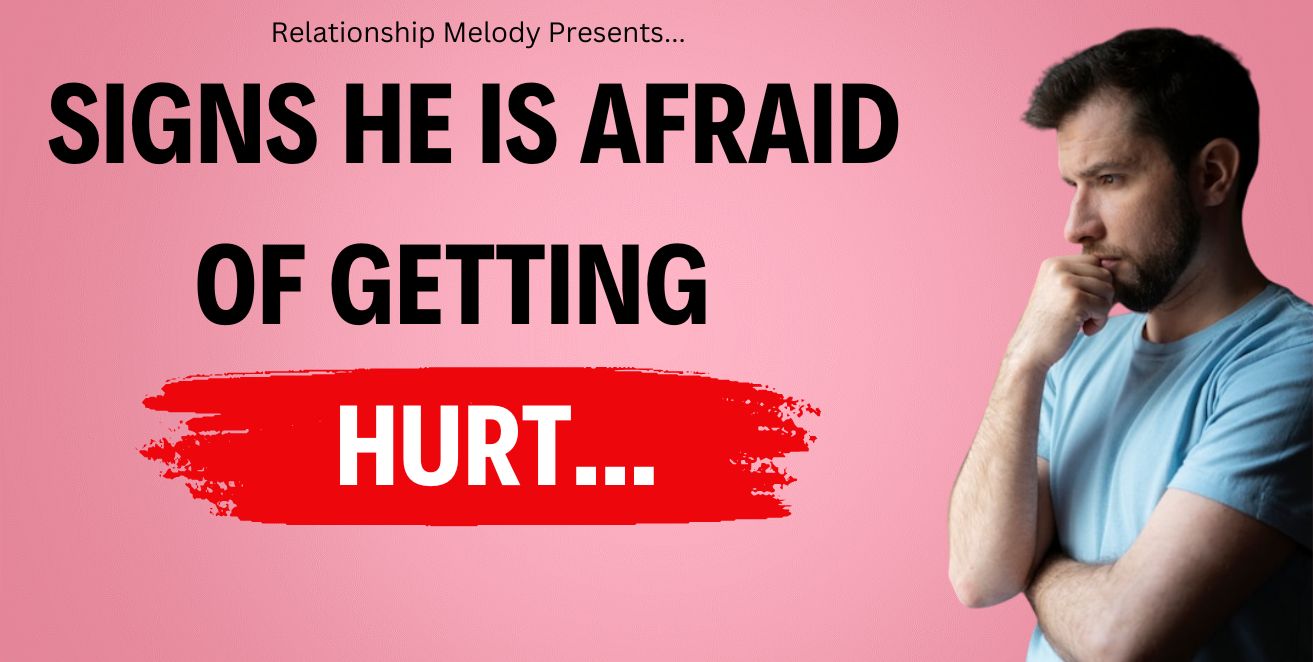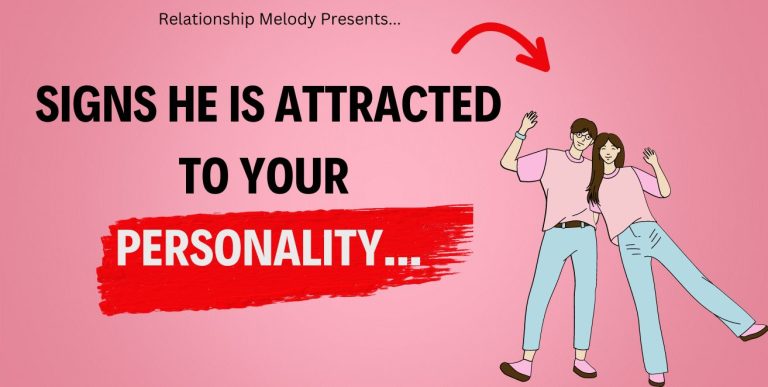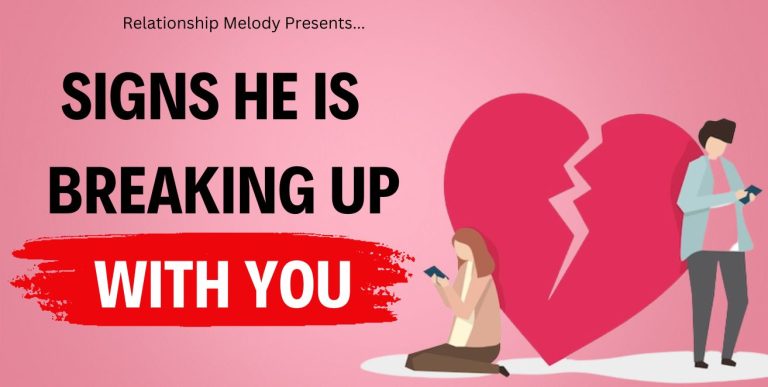25 Signs He Is Afraid of Getting Hurt
Navigating relationships can be a complex journey, and sometimes, we encounter individuals who harbor deep-seated fears of getting hurt.
While it’s crucial to approach relationships with empathy and understanding, it’s equally important to recognize the signs that someone may be afraid of emotional vulnerability.
In this blog post, we will explore 25 telltale signs that indicate a man’s fear of getting hurt, shedding light on the intricacies of his emotions.
25 Signs He Is Afraid of Getting Hurt
These are 25 signs to know.
#1 Consistent Emotional Distance:
When a man consistently maintains emotional distance, it often suggests a fear of intimacy. He may avoid sharing his deeper feelings and keep a barrier between himself and others to protect himself from potential emotional pain. This can manifest as a reluctance to open up and share personal experiences or vulnerabilities.
#2 Difficulty Expressing Feelings:
Men who struggle to articulate their emotions or express affection may be afraid of being vulnerable.
They may have experienced emotional hurt in the past and now find it challenging to trust others with their feelings. This fear can result in emotional bottling up and an inability to effectively communicate their needs and desires.
#3 Avoidance of Deep Conversations:
Engaging in deep conversations that explore personal emotions or plans can be uncomfortable for someone who fears getting emotionally involved.
They may deflect or change the subject to avoid delving into deeper emotional territory. This avoidance protects them from potentially exposing their true feelings and being hurt in the process.
#4 Overanalyzing Actions and Words:
Constantly dissecting conversations and overthinking interactions is a common defense mechanism for those afraid of getting hurt.
They may scrutinize every word, action, or gesture to protect themselves from misinterpretation or potential rejection. This habit stems from a fear of being misunderstood or inadvertently causing harm to others.
#5 Fear of Commitment:
A fear of commitment often stems from the underlying fear of getting hurt. Individuals who exhibit this sign may avoid entering into long-term relationships or making plans, as it involves emotional investment and vulnerability. They may prefer to keep their options open, fearing that committing to one person might lead to heartbreak.
#6 Prioritizing Independence:
Placing excessive emphasis on independence can be a subconscious way of avoiding emotional entanglement.
People who fear getting hurt may prioritize their self-reliance and autonomy to prevent becoming dependent on others emotionally. This can manifest as an aversion to relying on or seeking support from partners or loved ones.
#7 Difficulty Trusting Others:
Trust issues are often an indication of past emotional wounds that have yet to heal. Men who find it difficult to trust others may have experienced betrayal or heartbreak in the past, leading them to fear getting hurt again.
They may be cautious about sharing personal information or building deeper connections, fearing that their trust will be shattered once more.
#8 Extreme Self-Reliance:
Refusing to ask for help or support may reflect a fear of relying on others emotionally. Individuals who exhibit extreme self-reliance may avoid seeking assistance, even when they need it, to prevent themselves from becoming vulnerable. They fear that relying on others may lead to disappointment or being let down.
#9 Frequent Cancellations or Postponements:
Those afraid of getting hurt may resort to cancelling or postponing plans as a way to create emotional distance.
By avoiding spending too much time together or engaging in activities that foster emotional connection, they protect themselves from potential pain or attachment. This behavior serves as a self-protective mechanism.
#10 Unwillingness to Share Personal Space:
Reluctance to share living spaces or belongings can indicate a fear of emotional intimacy. People who are afraid of getting hurt may guard their personal space as a means of preserving their emotional boundaries. They may feel uncomfortable with the idea of someone else becoming too close or invading their sphere.
#11 Fear of Rejection:
Constantly worrying about being rejected or abandoned can hinder the development of deeper connections. Individuals who fear rejection may exhibit self-doubt and hesitation in pursuing relationships.

This fear stems from the belief that if they let someone in, they will eventually face rejection, leading to emotional pain.
#12 Inconsistent Communication:
Fluctuating between intense communication and sudden withdrawal can indicate underlying fears. Men who exhibit inconsistent communication patterns may struggle with their fear of getting hurt.
They may alternate between periods of emotional openness and distance, as they grapple with their desire for connection and their fear of vulnerability.
#13 Reluctance to Discuss Past Relationships:
Avoiding discussions about past relationships suggests a fear of exposing emotional vulnerabilities. Individuals who fear getting hurt may be hesitant to share details or talk about their past romantic experiences. They fear that revisiting these topics may trigger painful memories or expose them to potential judgment or rejection.
#14 Overly Independent Lifestyle:
An exaggerated focus on personal goals and achievements might be an avoidance strategy to prevent emotional attachment. Those afraid of getting hurt may pour their energy into individual pursuits and prioritize personal success above forming deep emotional connections. They may view emotional vulnerability as a potential distraction or risk to their ambitions.
#15 Fear of Emotional Intimacy:
Difficulty in establishing and maintaining emotional closeness is a common sign of fear of getting hurt. Men who fear emotional intimacy may struggle with forming deep emotional bonds. They may find it challenging to let their guard down, express vulnerable emotions, or fully connect with their partners on an intimate level.
#16 Unpredictable Mood Swings:
Rapid shifts in mood can be a sign of emotional turbulence caused by the fear of getting hurt. Individuals who fear emotional pain may experience heightened emotional sensitivity, leading to sudden and unpredictable mood swings
. These mood swings serve as a defense mechanism to keep others at arm’s length and avoid potential emotional triggers.
#17 Fear of Disappointment:
A constant fear of being let down can prevent one from fully investing in a relationship. Those who fear disappointment may have experienced previous relationships or life events that resulted in emotional pain.
They may approach new connections with caution, fearing that they will be let down or that their expectations will not be met.
#18 Keeping Options Open:
Maintaining multiple romantic options can be a safeguard against getting emotionally invested in one person. Individuals who fear getting hurt may consciously or unconsciously keep their options open, engaging in multiple relationships or dating casually.
This behavior provides a sense of emotional security and minimizes the risk of being deeply hurt by one individual.
#19 Unresolved Past Traumas:
Lingering unresolved traumas can contribute to a deep-seated fear of emotional pain. Men who have experienced significant past traumas, such as abusive relationships or childhood adversity, may carry these emotional wounds into their present relationships. Unresolved traumas can amplify the fear of getting hurt and hinder emotional growth.
#20 Constant Need for Control:
A need for excessive control can be an attempt to manage and mitigate potential emotional harm. Those who fear getting hurt may seek control in various aspects of their lives, including relationships. By exerting control, they believe they can protect themselves from unexpected emotional pain or vulnerability.
#21 Fear of Vulnerability:
Avoiding vulnerability at all costs is a common trait among individuals who fear getting hurt. Men who fear vulnerability may struggle to express their true feelings, share personal stories, or display emotions openly.
They may view vulnerability as a weakness or a gateway to emotional pain, leading them to maintain emotional guardeness.
#22 Highly Guarded Personal Boundaries:
Erecting strict boundaries can serve as a defence mechanism to prevent emotional vulnerability. Men who fear emotional pain may establish rigid personal boundaries as a means of self-protection.
They may be cautious about allowing others to breach these boundaries and may resist attempts to deepen emotional connections.
#23 Difficulty with Apologies:
Struggling to apologize or acknowledge mistakes may stem from a fear of being emotionally exposed. Those afraid of getting hurt may find it challenging to admit fault or apologize for fear of vulnerability. They may worry that admitting mistakes could be used against them or could lead to emotional rejection.
#24 Fear of Abandonment:
An intense fear of being abandoned or left behind can hinder emotional growth. Men who fear abandonment may exhibit clingy or needy behaviours in relationships. They may fear that if they express their needs or desires, their partners will leave them, causing significant emotional pain.
#25 Preferring Superficial Relationships:
Opting for shallow connections rather than deeper emotional bonds can be a sign of fear. Men who fear getting hurt may gravitate towards superficial relationships that do not require emotional vulnerability. They may avoid investing in meaningful connections to protect themselves from potential heartbreak.
Learn more: 25 Signs He Is Afraid Of His Feelings For You
Conclusion
Recognizing the signs of fear of emotional vulnerability in men can help us foster healthier and more compassionate relationships. By understanding these signs, we can provide support and create a safe space for them to heal and grow.
Remember, it takes time and patience to address these fears, and it’s essential to approach such situations with empathy and open communication.
By doing so, we can help each other overcome the fear of getting hurt and cultivate fulfilling and meaningful connections in our lives.
Liked Our Article? Feel Free To Support Us
Our Patreon link: https://www.patreon.com/RelationshipMelody

Welcome to Relationship Melody! Our website is dedicated to all things on relationships, dating, and love! We are passionate about helping you navigate the ups and downs of love, and our goal is to provide you with valuable insights and information that will make your journey toward a fulfilling relationship smoother and more enjoyable.







